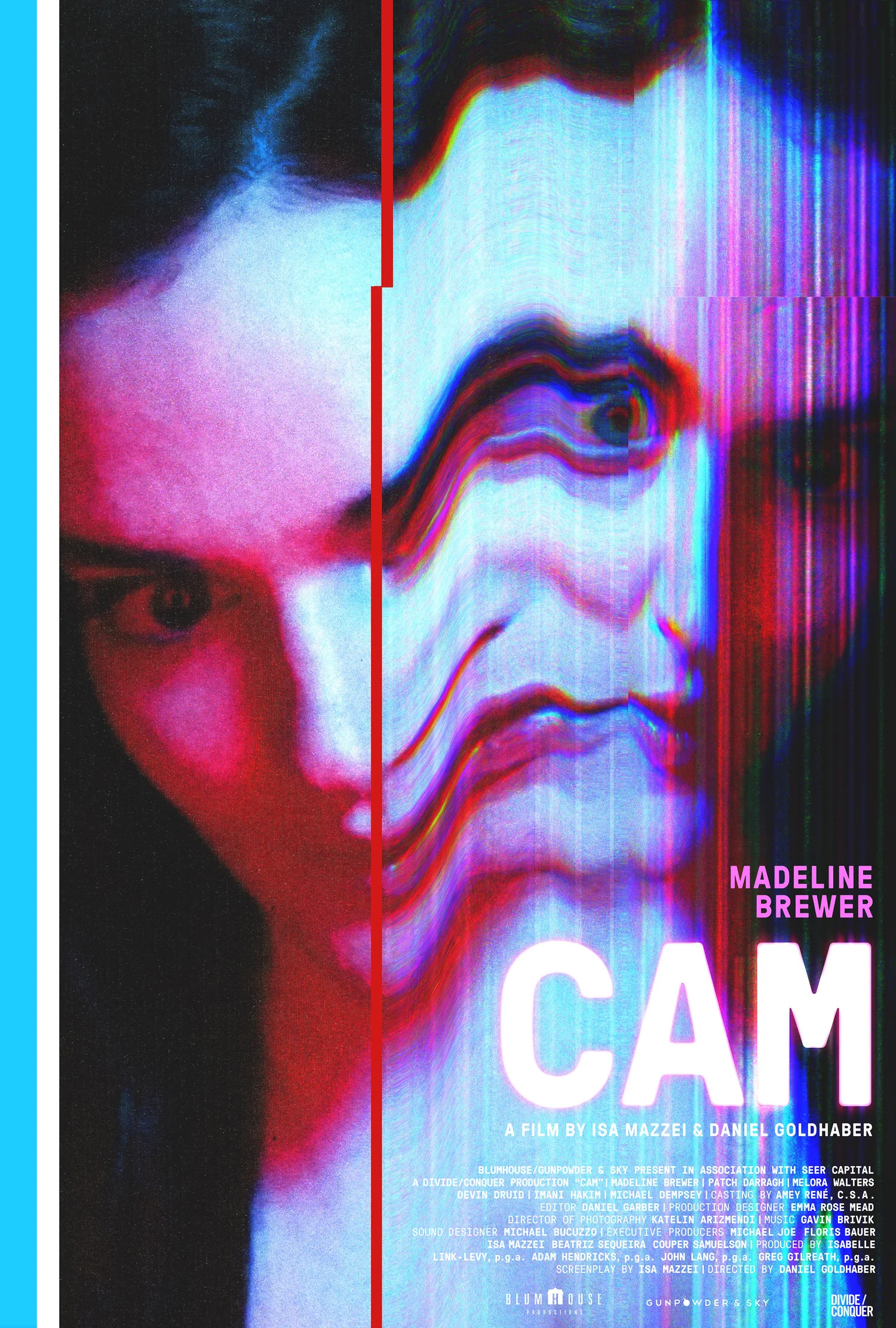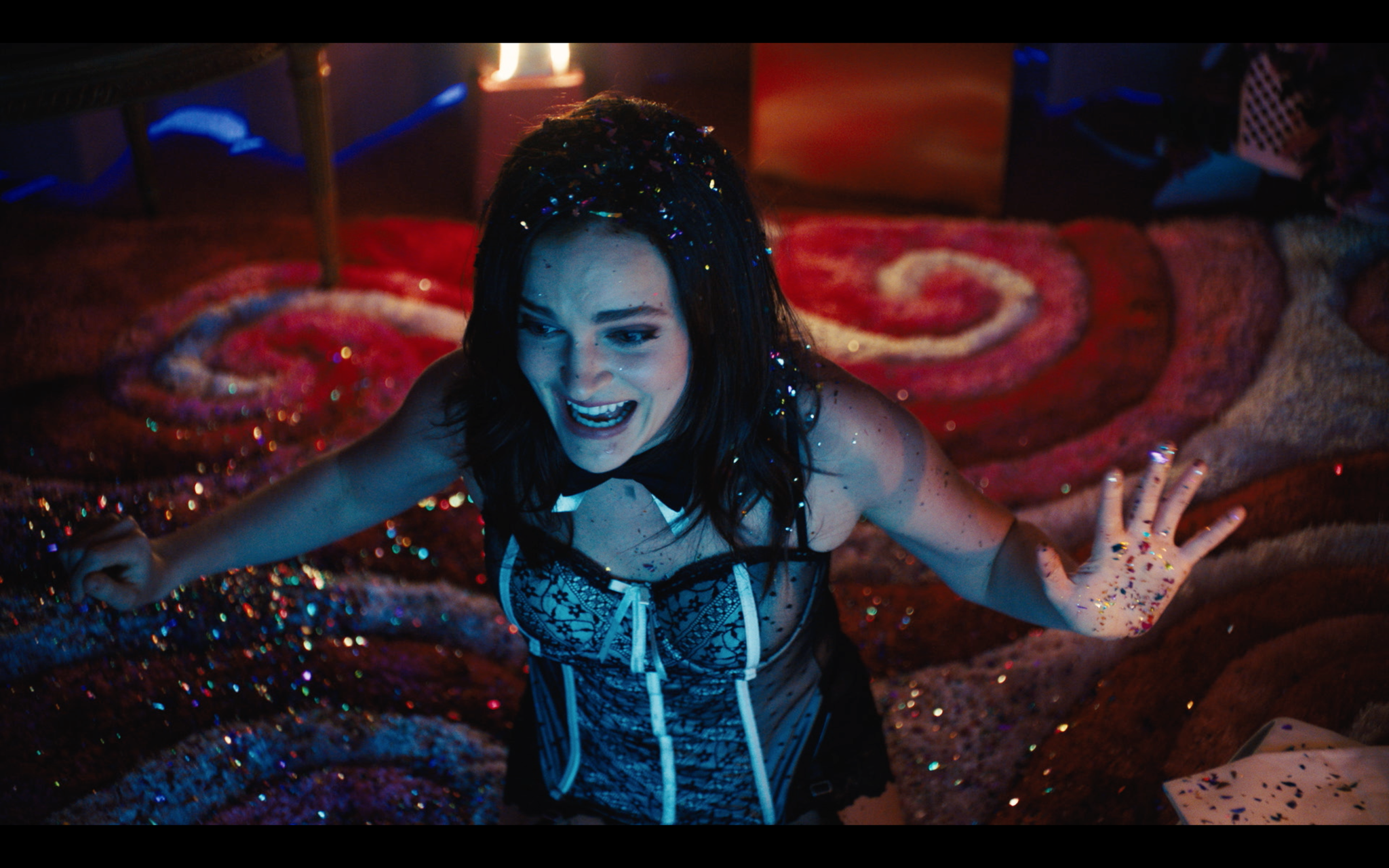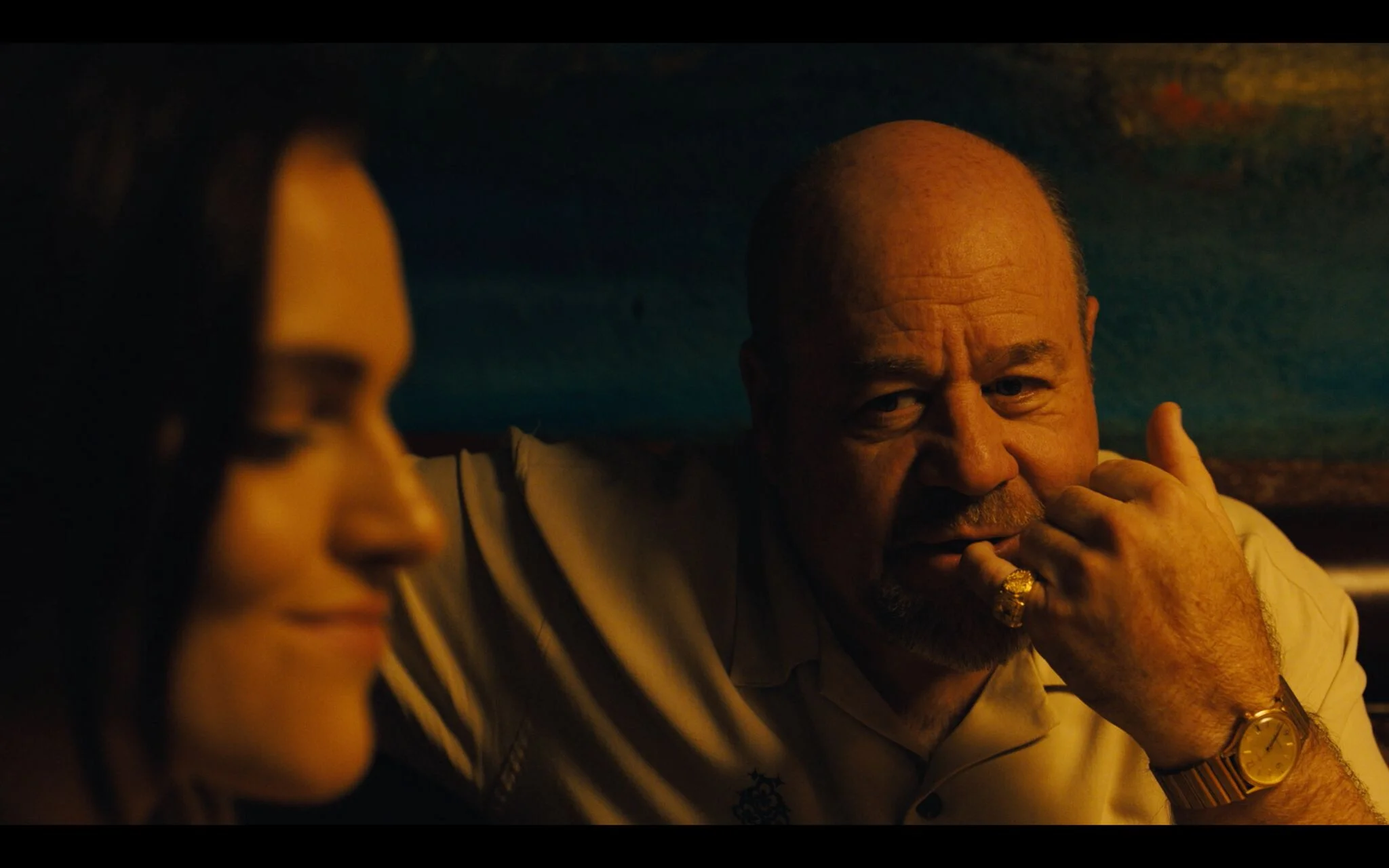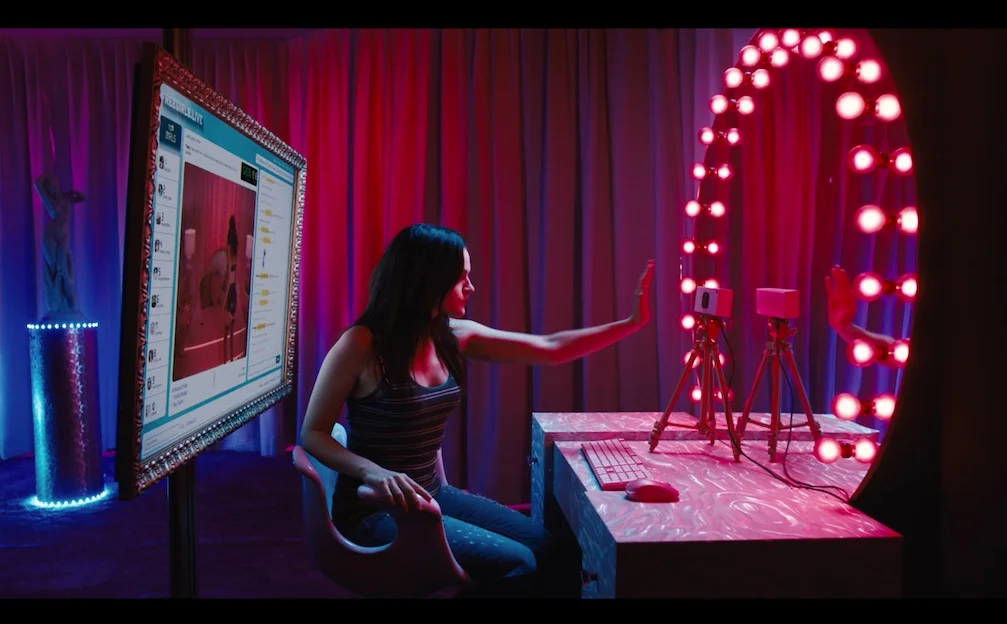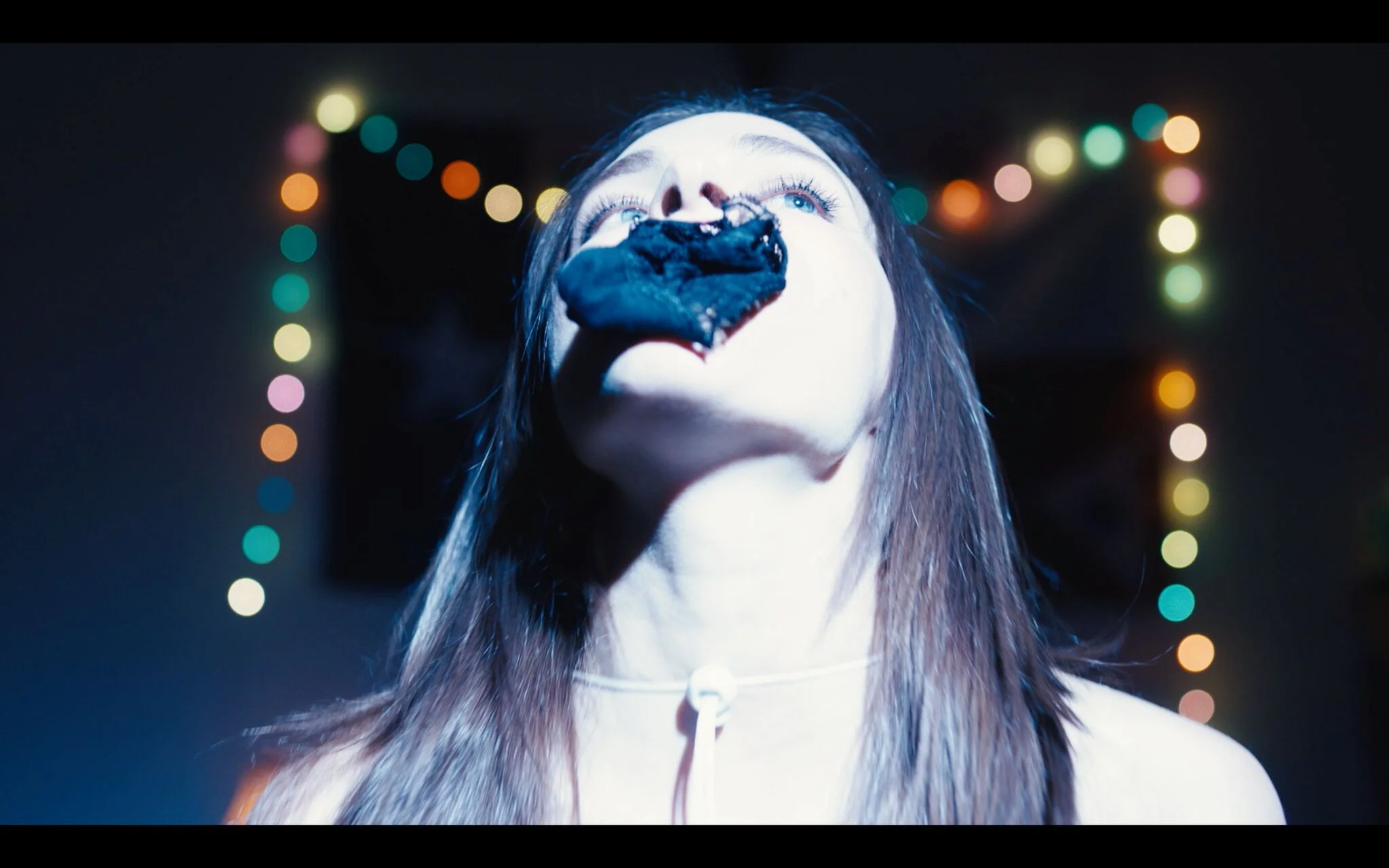CAM IS A PROVOCATIVE YET CHILLING REFLECTION OF OUR SELF VS. THE PERSONALITIES WE CREATE
As a self-proclaimed “media personality”, (I know, keep dreaming), there is an inherent…strangeness to the whole thing. In a similar sense to the films I review, I’m laying myself bare out here, ready to be picked apart for my opinions, which is often pretty justified. I don’t know you, and you barely know me, even if you’ve been reading my work for a while. All of us online, we create personas of ourselves. Social media gives us the opportunity to not only be better than we see ourselves, but the chance to be anyone we can imagine. A film like Cam poses an interesting question though... what would happen if you’re online personality became so strong, it took over your life entirely?
Directed by Daniel Goldhaber (his first feature), with a script from Isa Mazzei, Cam is the fascinating story of Alice/Lola (Madeline Brewer), an erotic webcam performer fighting to become top fifty, if not number one, amongst the rankings of girls who work for the site that owns her account. Lola gets more than she bargained for though when she does indeed begin to climb the rankings, not through her own doing, but through a doppelgänger which has hijacked her account, and her followers.
Right off the bat, there is a lot to like about Cam. Mazzei’s script immediately propels us into a provocative world of sinister lust and desperation that most of us would never give a second thought to, all framed by the talented direction of Goldhaber. When we think of “cam girls”, it’s easy to imagine someone granting viewers with some quick flashes of the goods, before calling it a night and signing off without a second thought. And while I can’t validate the authenticity of Mazzei’s script as a peek behind the curtain, it feels foolish to have assumed such a life would ever be easy. Brewer brings a genuine lovability to her character. Viewers of all orientations could have an easy time falling in love with her personality, a girl who works so hard to not only keep followers, but grow her base, that she is willing to set-up fake “suicides” as part of her show. Lola works night and day, perfecting her skills, keeping in touch with fans, urging us to love her so much we want to pay her to keep going. But that’s all part of the trick, isn’t it? Brewer is so convincing as Lola, that she is fooling us into admiring her, the same way her character is manipulating her fans. See, on the surface, there really isn’t a whole lot to Lola. By the time we meet Lola, she has become a shell of the person she was, even giving up her real name, Alice. She is so wrapped up in this world, that she has become more of the personality she created, instead of who she really is, which is someone the audience rarely sees.
All throughout, the filmmakers are making a statement with Cam: Do we become so wrapped up in the hunt for “likes” and “followers”, that we forget who we ever really were in the first place? From the moment we meet sweet, funny Lola, until the final, waning seconds, the answer unfolds before us in a frighteningly perverse manner. Goldhaber presents us with a voyeuristic view of Lola, watching her in her most private moments when the cameras aren’t on. At first, she seems to have it altogether, but as pressure mounts for Lola to become more popular, her façade begins to slip, and we’re witness to brief glimpses of just how fake of a person Lola really is, and what kind of darkness she holds within.
Under normal circumstances, Lola could be considered an anti-hero, in the sense that she uses everyone around her without ever creating genuine relationships, but Mazzei is smart to populate Cam with a series of men who think they are charming, but are in reality, slimy sleaze-bags who are trying to use Lola in their own way. You’ll love to root for her getting the better of these scumbags, but it’s also revealing in a sense because these guys are actually the only people in Lola’s life that she “cares” about. This again plays into how much we value our following over those that legitimately love us, like Lola’s family. Once Lola discovers her account has been taken over by a doppelgänger that may or may not have supernatural origins, it’s no wonder that her world is so quickly pulled out from under her, leaving the exquisite table settings she’s carefully laid out, shattered to pieces. The “friends” she thought she had are non-existent.
Cam is, at its digital core, a sexy descent into paranoid madness. Like the orgasm Lola’s clientele seek, Cam builds and builds to an inevitable conclusion, starting off strange yet lighthearted, before tearing down on a way road to a screaming finish. Goldhaber demonstrates a mastery of suspense, displayed brilliantly in the opening scene, often keeping the audience as close to the edge as Lola. Cam is all about false realities. In her mind, Lola seems to imagine herself as having some kind of glamorous life, ordering expensive furniture online, wearing fancy clothing, and performing in a room shaded by elegant pinks and purples. But as soon as Lola’s doppelgänger steals her account, the curtain is pulled back, and we see her life for what it really is: boxes that remain unpacked, white walls, a lonely living. I consistently found myself wondering how much I could really trust Lola and her perception on things, because she clearly hasn’t had the best perception of her life since before we meet her.
Goldhaber’s film is as striking as it is interesting. The tension created by Lola’s unpredictability and her declining sanity sets the tone for an unnerving voyeurism which the audience can’t help but participate in. We want to know what Lola will do next. Brewer brings such an energy to the screen, that we practically crave it. What comes towards the end as Lola tracks down her doppelgänger and begins to discover who, or what, it really is, is a disturbing showdown between the inner self and the mask we wear. Lola is forced to watch herself again and again, doing things she has never done, doing things she either wants to do, and others that disgust her, or go against her values. It’s as if Lola is watching both the creation of her fame and the destruction of herself in real time. Cam is the perfect reflection of that battle between the self and the lie we create.
The filmmakers take care to keep the audience on their toes as we follow Lola through a labyrinth of unexpected twists and turns, and discover things we thought were one thing that are actually another. Some will find the finale to be, at best, disappointing, and at worst, predictable, but Cam isn’t necessarily about the ending. It isn’t about the “how”, or the explanation of things, but the “why”, and what it all means. Goldhaber and Mazzei deliver an intelligent horror film that turns the camera on the viewer and asks, what has more of a presence in the world, you, or your profile.
Matt Konopka

